I was just a budding record collector back in 1977 when Mobile Fidelity Sound Lab was getting their start. My father brought home a few of the early pressings. Remasters of albums like Steely Dan’s Aja and Supertramp’s Crime of the Century changed what we heard on recordings. It wasn’t long before I too was bringing home records with the iconic “Original Master Recording” banner emblazoned across the top.
These days, MOFI still makes amazing recordings, but has also branched out into turntables, cartridges, and phono preamps. These products, like their remasters, are making quite the splash into the marketplace.
I had the opportunity to hear the $299 StudioPhono at a couple different audio shows. I assumed that I was listening to a much more expensive unit, but upon my inquiry, the representative from MOFI sported a huge grin and pointed to this small, unassuming phono preamp doing some mighty heavy lifting for under three hundred dollars.
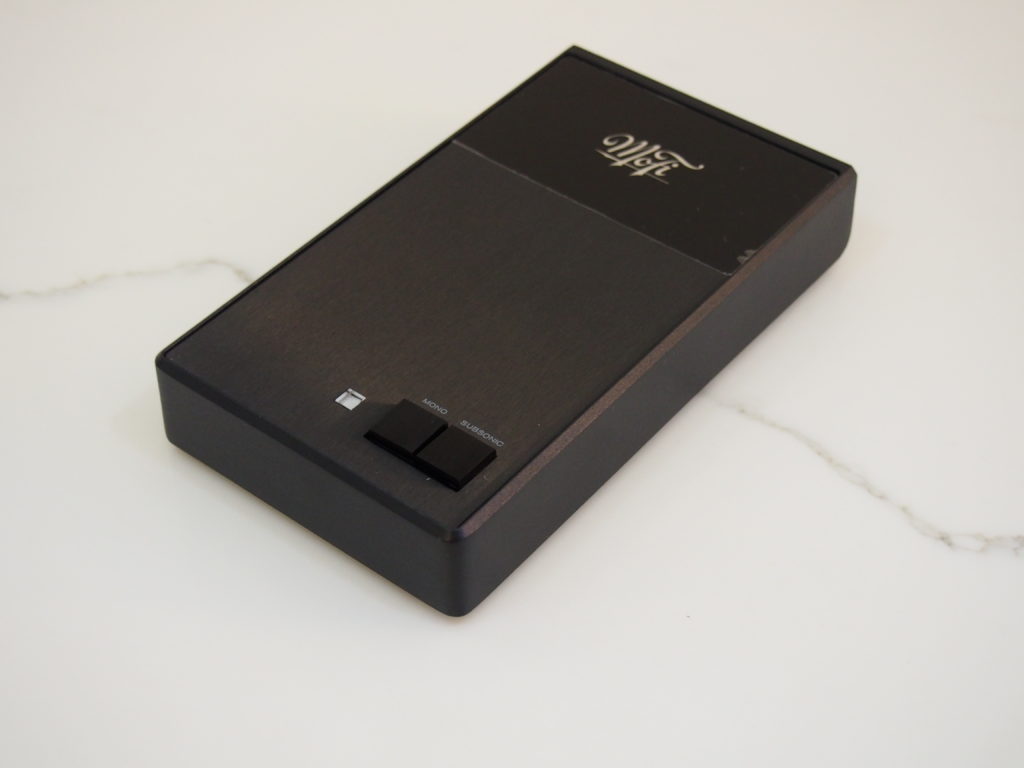
Finally, my opportunity has come to audition the StudioPhono for myself. After some break-in time, the results are just… game-changing.
I burned the StudioPhono in with dozens of records from my collection, having fun with everything from rare Black Sabbath to some spoken word poetry. But now the time has come to really dive into this for you, and I couldn’t be more excited.
Starting with a 180g pressing of John Hiatt’s latest release, The Eclipse Sessions, spinning on my Pro-Ject One turntable with a Sumiko Oyster cartridge, the StudioPhono instantly emphasizes that some records just sound much better than the CD. There is so much detail and life in this recording brought out by the Mofi box. Acoustic guitars are vivid and sharp, which is the first thing that jumped out at me. Electric guitars feel expansive in the wide soundstage. Percussion is remarkably clean and clear. Hiatt’s vocals sit in the air like he is the room with me.
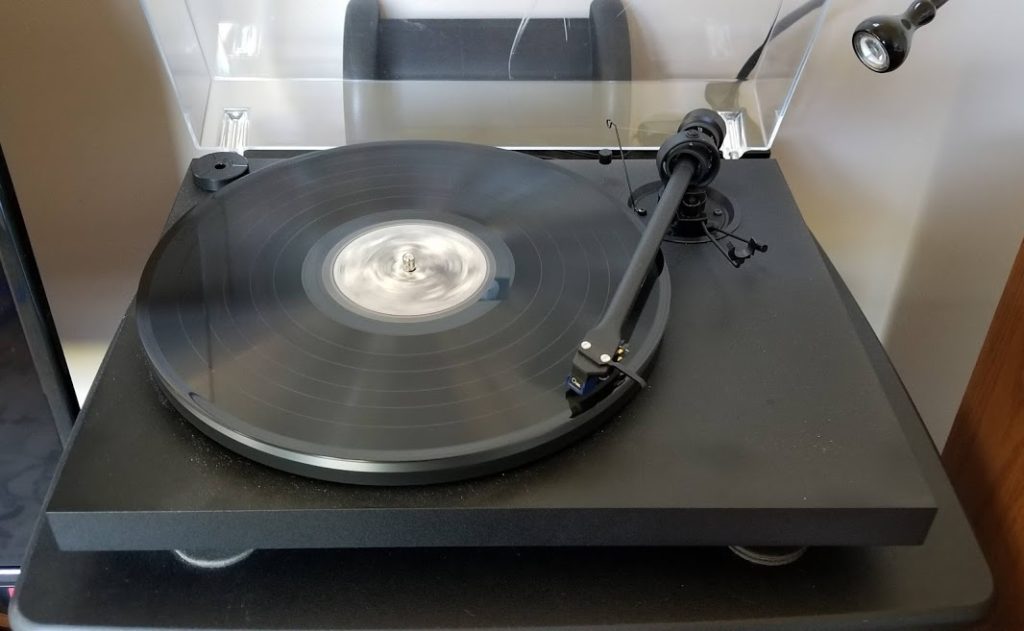
It’s the soundstage that I would like to go back to. This is where the StudioPhono makes its biggest mark. Here, the Mofi device plays well out of its value-priced league, presenting a sound field that sounds like phono preamps costing many times the reasonable asking price. My listening room simply sounds massive with every record played. Music comes from beyond the confines of the speakers and seems to emanate from the entire wall. Since the StudioPhono has been in my somewhat modest system, there have been more records than CDs played, and with far more enjoyment.
Spinning the Cars’ Heartbeat City, and going for my favorite track, “It’s Not the Night,” the StudioPhono makes this original pressing sound like a million bucks. There are irreplaceable dynamics in this record, and the Mofi brings the out the power and punch in this song. Heading forward to the title track, keyboards move around the room, almost as if this were a 5.1 surround recording. Simply astounding.
Sliding back to 1958, Duane Eddy’s Twangy Guitar-Silky Strings hits the platter next. It’s only 1:30 in the afternoon, but I feel like I need an Old Fashioned on the rocks to be taking this in. This is a time machine on wax. Yet again, the huge soundstage of the Mofi StudioPhono is coming through. My living room feels as large as a barn. Every instrument in the vintage recording is crystal clear. Duane’s (very twangy) guitar resonates over the sharp percussion and flowing strings. There are subtle nuances present from the early days of stereo recordings and hi-fi telling stories from their by-gone era. Tape ghosting in the beginning of tracks, and the hard panning of instruments to enhance that stereophonic effect are all here on my nearly mint copy.
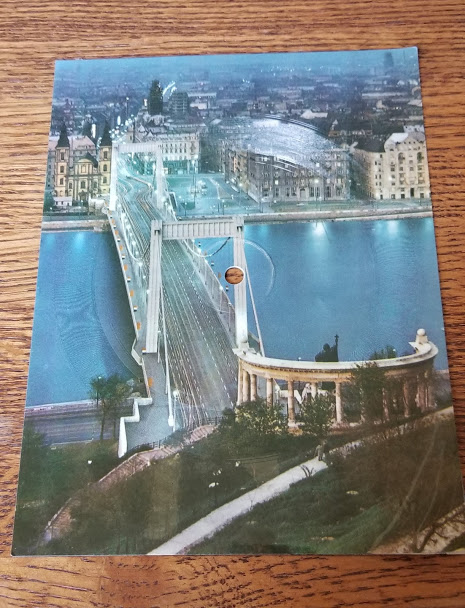
The most unique thing I came across to play showed up recently while cleaning out the garage. While going through a box of photos, I found a record postcard from Budapest featuring the song “Illes” by Johnny Guitar. No, this isn’t the famous Johnny “Guitar” Watson, but a European musician of whom there is little information available for. This is something that I just have to try. Switching the Pro-Ject’s belt over to 45, I carefully drop the needle on this cardboard/plastic relic from the 1960’s. Wow. Not only is this an amazing song- it sounds like something straight out of a Quentin Tarentino movie- but this record actually sounds better than some of the LP’s in my collection. The fidelity is outstanding. What have I discovered here?
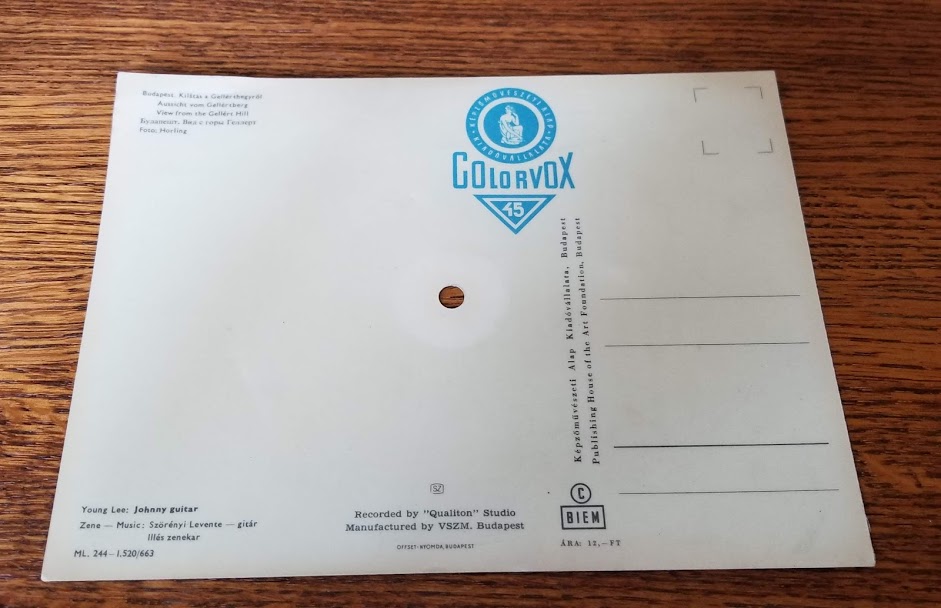
The Mofi StudioPhono, besides being an incredible sounding phono preamp, is fairly inconspicuous as a physical unit. Once set up with the dip switches on the bottom to match your cartridge, there are only two buttons on the top- one for a subsonic filter and one to switch the unit to mono. Even though I played a few records at a pretty high volume, and with an M&K subwoofer in the system, I never found it necessary to engage the subsonic filter. It is a handy feature, though, for those users that suffer problems with rumble in their systems. The mono selector is a handy feature as well, especially for those that love to collect Beatles mono pressings, or run 78’s. The aforementioned dip switches on the bottom allow you to set your gain for 40-66 dB, or to match the StudioPhono to just about any moving magnet or moving coil cartridge. Load impedance for MM is 47,000 ohms, while MC is settable for 75-47k ohms. THD is <.01 for MM and <.012 for MC.
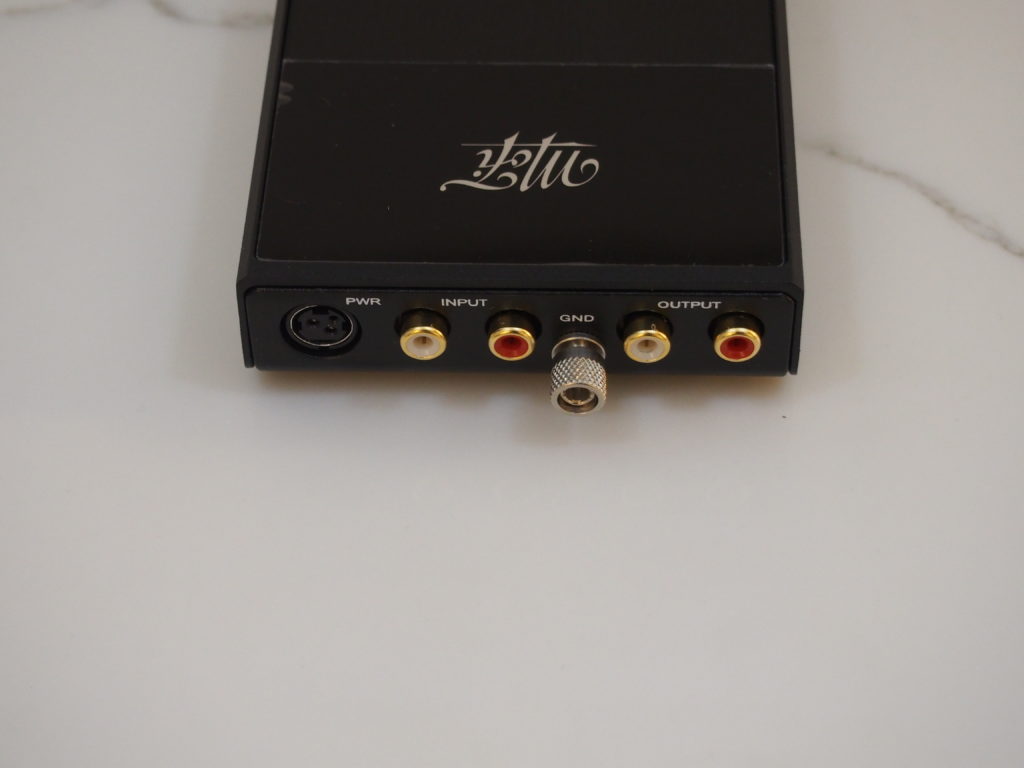
There have been pieces of gear recently that have impressed me, and those that have even wowed me. However, few have had quite as powerful of an impact like the Mofi StudioPhono has had. Whether you’re just starting your record collection, or a lifelong collector, this might be one of the most worthwhile pieces to check out that I have seen in a long time. Highly recommended.
Associated Equipment
Pro-Ject One turntable
Sumiko Oyster Cartridge
Bluejeans Cable, 2m interconnect
Yamaha RX-V663 receiver
Klipsch KLF-30 loudspeakers
M&K K9 subwoofer
Kimber Kable speaker cables
Over a year late I know, but two things. First of all I agree with everything you say about the StudioPhono, it’s a great little phono stage, definitely one of the best below £500, and maybe below £1000! Secondly, it’s actually the song ‘Johnny Guitar’ by a Hungarion band called Illes Zenekar, who I believe were the Hungarian version of the Shadows!